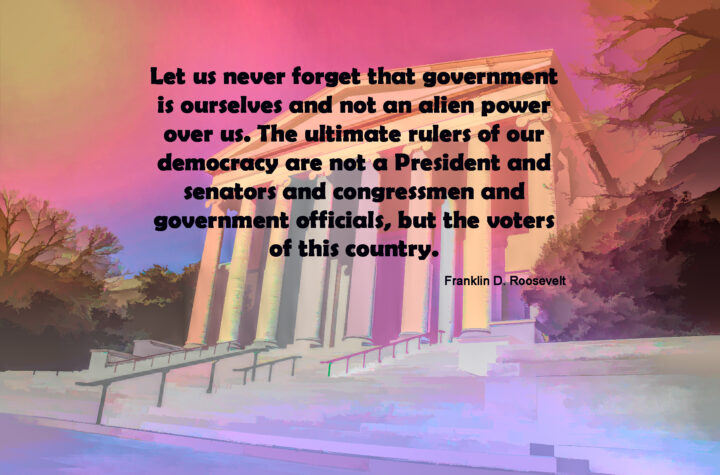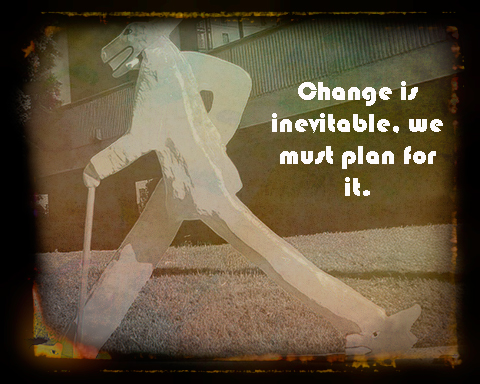
The night the trump was elected, two thoughts kept me from peaceful sleep. First, how the hell did this happen? Secondly, don’t worry, he will never get past his first year as president. This opinion was based on based on my knowledge of his organization and business approach in my years as a consultant to Atlantic City Casino industry, well that didn’t happen.
But today maybe it did. The Democrats have voted for impeachment. So why can’t I celebrate? Should not the Democratic community be dancing in the streets? Sorry, it’s hard to dance when the shadow over our democracy continues to lengthen.
The impeachment process was perceived to be simply political and managed to get the best result for the Democratic majority. The problem is the result is another step backward in the polarization of this country. Denial of the factual statements by the Republicans as offered by courageous staffers who lived in a deep state of values – not political expediency. – Is both frightening and depressing. Of course, trump should be impeached and voted out of office because I believe what they said. Why doesn’t the truth of those testifying – Marie Yovanovitch, Bill Taylor, George Kent, Army Lt. Col. Alexander Vindman, Fiona Hill– change the Republican mind.?
“A man with a conviction is a hard man to change. Tell him you disagree, and he turns away.
Show him facts or figures and he questions your sources. Appeal to logic and he fails to see your point …”
I now recognize that truth is only accepted from those you trust. There are facts, and there are beliefs, and there are things you want so badly to believe that they become as facts to you. “A man with a conviction is a hard man to change,” Stanley Schacter wrote in When Prophecy Fails, “Tell him you disagree, and he turns away. Show him facts or figures and he questions your sources. Appeal to logic and he fails to see your point …” with evidence, unequivocal and undeniable evidence, that his belief is wrong: what will happen? The individual will frequently emerge, not only unshaken, but even more convinced of the truth of his beliefs than ever before.” Let me introduce you to Representatives Doug Collins and Jim Jordan and the rest of the committee.
There are facts, and there are beliefs, and there are things you want so badly to believe that they become as facts to you.
“A man with a conviction is a hard man to change,” Stanley Schacter wrote in When Prophecy Fails, their 1957 book about this study. “Tell him you disagree and he turns away. Show him facts or figures and he questions your sources. Appeal to logic and he fails to see your point … with evidence, unequivocal and undeniable evidence, that his belief is wrong: what will happen? The individual will frequently emerge, not only unshaken, but even more convinced of the truth of his beliefs than ever before.”
Seeking facts that you wish to believe is easy in the current media environment. You can turn off the TV, change channels, tune in to the station that has pundits holding similar beliefs to yours. Pick up your laptop, iPad or iPhone and you can “like” those Facebook pages that give you the preferred version of the news. Like a young boy who builds his fort of cardboard and creates an environment of his choice thereby blocking the reality of his place from view. In time it becomes the man cave where the only intellectual stimulus allowed is that which comforts you by its agreement.
Not all people want to be shut away from the environment but rather protected from it. They make windows in the walls to let light in or for them to see out of. At times they leave the cave to wander in the real world. Now they are exposed to elements or opinions that invalidate their true beliefs. Isn’t that a good thing? They have left their cocoon and are ripe for mind changing experience. After all, occasionally it rains and you need an umbrella. Unfortunately, an individual’s belief system can be so ensconced that the rain of truth simply becomes an annoying drizzle. You might say that they retreat into a mental gymnasium where they will backflip twist and turn their body of thought to remain convinced that they are right. They do not see the facts. Their question is not, “Can I believe this?” But rather, “Do I want to believe this?
“The real enemy of truth is not ignorance, doubt, or even disbelief,” he writes. “It is false knowledge.”
Maybe one day on their stroll they will encounter a tiger, in whatever form. They can deny its existence, “that’s not a tiger” – but on the off chance that they are wrong, they will be eaten by the Tiger. So they run for the hills. Their baggage of a closely held ideology is dropped as it may hinder their survival.
After all, Survival is more important than truth.
In any time, even today, knowledgeable people are valued. But to be informed comes at a cost—it requires time and work. Of course, you can avoid that hard work by getting people to believe that your good source even if you are not, thus you get the benefit without the work. Liars prosper, in other words, if people believe them. some researchers have suggested motivated reasoning may have developed as a “shield against manipulation.” “A tendency to stick with what they already believe could help protect people from being taken in by every huckster with a convincing tale who comes along.”
Holding true to a false belief system is not an individual task. The strength to hold that belief is derived from a strong connection to a group with similar beliefs. This is inherent to religious beliefs where the church becomes the secure place where all hold similar beliefs. Now it appears that a deeper importance is ascribed to political beliefs. Republicans relate to other Republicans and the same for Democrats. In our expanded social circles, the disclosure of your political identity immediately creates tension. The space of social interaction is now a dangerous place to be avoided at all costs. Interaction ceases as both parties now think “she’s not really worth talking to” while they look for an escape to a safer setting. There are no longer discussions, but debates, arguments and disputes strongly tainted with the vehemence. Remember when we reached a point in the discussion where agreement was unlikely? We took a breath and simply said “well, we’ll just have to agree to disagree.” Today, it is a no prisoners approach based on I’m right and you’re wrong, you are bad person and not worth talking to. To quote the president “sad”.
We must defend our political affiliation no matter the information presented. Not to do so would potentially reduce your standing or acceptance in the larger group. Our reasoning is now affected by the motivation to remain within the group. Our political party has now become the stronger part of our identity. The shadow of polarization darkens any honest exchange of ideas or philosophy. The frightening part of tribalism and living in silos is that it will feed upon itself and become even more entrenched in our social environment. In my opinion, true change to return balance in our social engagements will only occur on a one-to-one, face-to-face situation. It will not occur in Facebook posts, twittering or snap chatting.
Several years ago, I was given the opportunity to judge a student congressional debate. Public speaking and debate were my varsity sport in high school. As the speakers started to present their arguments directing their opening remarks at me, the judge, I asked them to stop and turn their podiums so they can look at one another. One of them questioned my request stating that they did not face one another as their teachers were concerned that the debate could get out of hand resulting in not just verbal conflict but physical conflict. I mentally chuckled, recalling several occasions that I wanted to jump over the podium to take on my adversary. But the discipline of the environment and expectations of my moderator prevailed, and I stayed in place. Thus, my response to the debaters was if you are unable to look your opponent in the eye while trying to convince him or her of your point of view then you’re losing the value of the experience. You are addressing the person not the wall. Debate is an intensely personal experience but it should remain within accepted social mores. There is no pounding the bar with your beer mug, no pointing fingers, no invasion of personal space. You may not see eye to eye with one another, but you can look them in the eye while offering your opinion.
It is an exchange of differing opinions.
However, being intelligent and informed can often make the problem worse. The higher someone’s IQ, the better they are at coming up with arguments to support a position—but only a position they already agree with, high levels of knowledge make someone more likely to engage in motivated reasoning—perhaps because they have more to draw on when crafting a counterargument. The downside is that it may result in condescending behavior thus triggering a stronger grip on an opposing belief, regardless of the facts
I often yearn for mid-20th-century media, when just a few newspapers and TV channels fed people most of their unbiased news vegetables. But then history reminds me that in the 19th century, papers were known for competing for eyeballs with sensational headlines, and in the time of the Founding Fathers, Federalist and Republican papers were constantly sniping at each other. Andrew Jackson our seventh president worked with one of his ardent supporters, Francis Preston Blair, to create a newspaper Washington Globe that would be oriented to his politics. In the liberal context it would be 1800s version Fox News.
In today’s world our point of view has little or nothing to do facts. Is truth now doomed? Will people remain closed to any truth not their own? I don’t believe so. But I am suggesting that that, no matter how strong the evidence is, there is minimal hope that it will change someone’s mind if they refuse to believe those “facts”.
They must change their own mind.
Mortimer gets THE LAST WORD –
“Ordinary conversations between persons who confront each other are good only when they are carried on civilly. We are not thinking merely of civilities according to conventions of social politeness. Such conventions are not really important. What is important is that there is an intellectual etiquette to be observed. Without it, conversation is bickering rather than profitable communication. We are assuming here, of course, that the conversation is about a serious matter on which men can agree or disagree. Then it becomes important that they conduct themselves well. Otherwise, there is no profit in the enterprise. The profit in good conversation is something earned.”
― Mortimer Adler



More Stories
THE MAYOR AND MARIJUANA
WHICH DEMOCRACY ARE WE DEFENDING?
WINNING WAS THE EASY PART